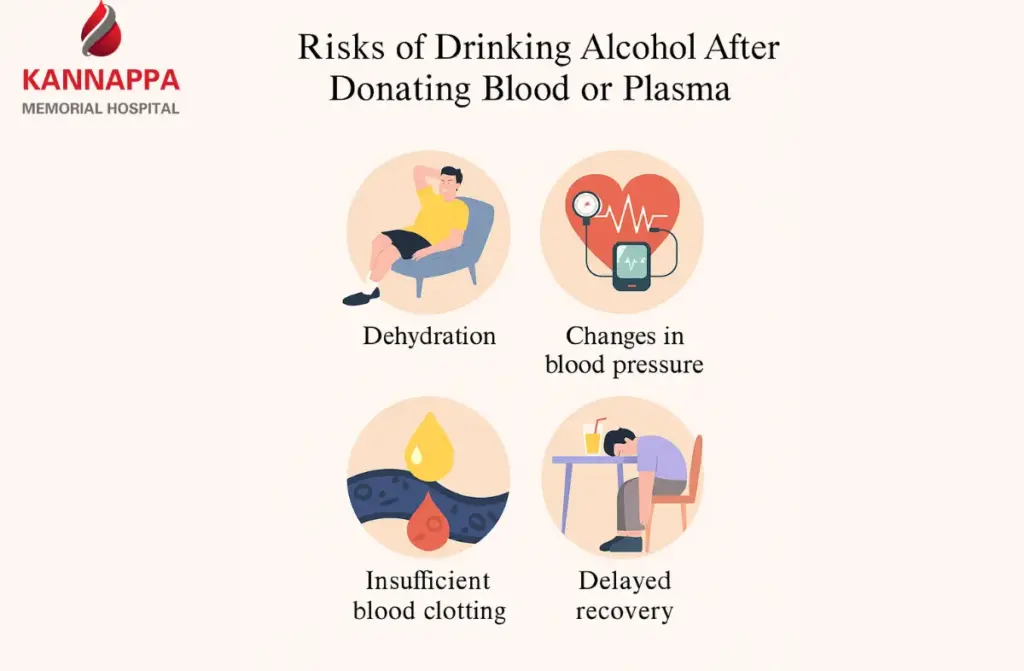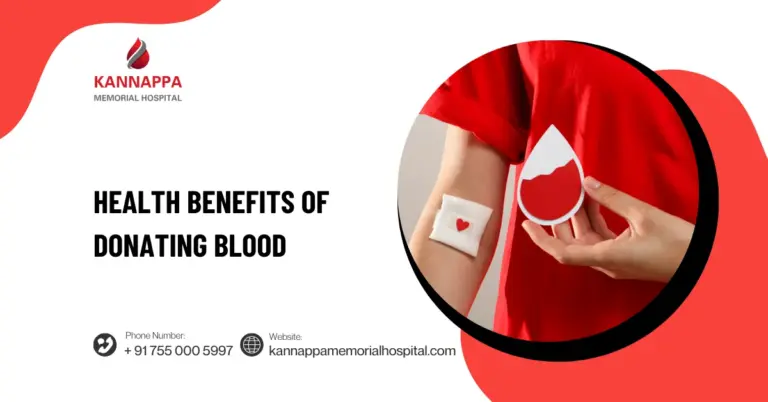Donating blood is one of the simplest yet most profound ways an individual can impact lives. Each donation has the potential to save patients undergoing surgeries, battling cancer, or recovering from severe injuries. Beyond its life-saving power, this selfless act also carries remarkable rewards for the donor. Many people are unaware that the health benefits of donating blood extend far beyond the satisfaction of helping others it can enhance one’s physical well-being, emotional balance, and even longevity. In essence, when you give blood, you’re not just saving lives; you’re also nurturing your own.
6 Surprising Health Benefits of Donating Blood
Here are the 6 surprising health benefits of donating blood that make this noble act beneficial for both recipients and donors:
- Regulates Iron Levels: Donating blood helps maintain balanced iron levels in the body, preventing excess iron from accumulating in organs such as the liver and heart. This balance reduces the risk of hemochromatosis, a condition linked to liver disease and heart complications.
- Promotes Cardiovascular Health: Regular donors have a lower risk of heart attacks and strokes because blood donation decreases blood viscosity and iron stores. This leads to smoother blood flow and reduces oxidative stress on blood vessels.
- Stimulates Blood Cell Production: After each donation, the body works to replenish lost blood, stimulating the production of new red blood cells. This natural renewal process keeps the circulatory system healthy and efficient.
- Supports Liver Function: Excessive iron can cause inflammation and damage in the liver. Blood donation helps prevent such buildup, supporting healthier liver enzymes and reducing the risk of fatty liver disease.
- Acts as a Mini Health Check: Every donor undergoes a brief medical examination, including blood pressure and hemoglobin checks. These screenings can help detect potential health concerns early, offering an added preventive benefit.
- Boosts Emotional Well-being: Among the most profound health benefits of donating blood is the sense of fulfillment it brings. Knowing that one donation can save multiple lives enhances mood, reduces stress, and fosters a lasting sense of purpose.
What to Know Before You Donate
Before donating, it’s important to understand key factors that ensure a safe and beneficial experience for both the donor and the recipient. While the health benefits of donating blood are well-documented, preparation and awareness play a crucial role in maximizing those positive effects. Here are essential points to know before you donate:
- Meet the Eligibility Criteria: Donors should generally be in good health, weigh at least 50 kg, and be between 18 and 65 years old. Conditions such as recent surgeries, infections, or certain medications may temporarily disqualify someone, ensuring safety for both donor and patient.
- Stay Hydrated and Eat Well: Drinking plenty of water and eating an iron-rich meal before donating helps maintain blood volume and energy levels. Foods like spinach, lean meat, and lentils support iron replenishment, minimizing post-donation fatigue.
- Avoid Alcohol and Tobacco: It’s best to refrain from alcohol or smoking 24 hours before donation, as these can affect hydration and oxygen levels. A well-rested, toxin-free body ensures smoother recovery afterward.
- Understand the Frequency of Donation: Men can safely donate every three months, while women are advised to wait at least four months between donations. Regular donors, particularly men, often experience improved heart health and balanced iron levels, highlighting one of the key benefits of donating blood for men.
- Expect a Quick Health Screening: Before donation, staff will check your blood pressure, pulse, and hemoglobin levels. This brief assessment not only ensures safety but also serves as an early indicator of potential health concerns.
- Plan for Recovery: After donating, rest for 10–15 minutes, enjoy a light snack, and continue hydrating throughout the day. These small steps help the body adjust and maintain the health benefits of donating blood over time.

During the Donation
During the donation process, donors experience a carefully monitored and safe procedure that typically lasts between eight to ten minutes. This stage not only ensures the quality of the blood collected but also contributes directly to the health benefits of donating blood by promoting circulation and renewing red blood cells. Below are important aspects to understand about what happens during the donation:
- Pre-Donation Preparation: The process begins with sterilizing the arm and selecting a suitable vein. Trained medical professionals use sterile, single-use equipment to ensure the highest safety standards and prevent any risk of infection.
- The Blood Collection Process: Approximately 450 milliliters of blood are drawn, which the body naturally replenishes within a few weeks. This mild loss stimulates the bone marrow to produce fresh cells, one of the key health benefits of donating blood that enhances long-term wellness.
- Monitoring Throughout the Process: Donors are closely observed by medical staff to ensure comfort and stability. Blood pressure and pulse are monitored to prevent dizziness or fatigue, and assistance is immediately available if a donor feels lightheaded.
- Special Considerations for Women: Understanding the benefits of donating blood for women highlights how donation supports overall well-being. Regular donation can help balance iron levels, particularly for women who may have elevated iron stores after menopause, reducing risks linked to heart disease and oxidative stress.
- Emotional Satisfaction and Relaxation: Many donors report a sense of calm and fulfillment during the process, knowing their contribution can save lives. The environment is designed to be supportive, helping donors remain relaxed and comfortable throughout.
What To Do Before Donating Blood
Before donating blood, proper preparation ensures both a safe experience and the ability to fully enjoy the health benefits of donating blood. Taking time to get ready helps maintain stable energy levels and minimizes the risk of dizziness or fatigue after donation. Here are essential steps to follow before you donate:
- Eat a Balanced Meal: Have a nutritious meal rich in iron and vitamins at least a few hours before donating. Foods such as spinach, eggs, beans, and lean meats help sustain hemoglobin levels and promote quicker recovery.
- Stay Hydrated: Drink plenty of water or juice before your appointment. Staying hydrated ensures smoother blood flow and reduces the likelihood of lightheadedness during or after the process.
- Get Adequate Rest: A good night’s sleep is vital for maintaining normal blood pressure and energy levels. Donors who are well-rested typically recover faster and experience fewer side effects.
- Avoid Fatty or Processed Foods: High-fat meals can interfere with testing procedures and affect the quality of donated blood. Opting for lighter, nutrient-rich foods ensures your donation is effective and safe.
- Understand Personal Health Requirements: Knowing your medical history and current medications helps determine eligibility. For example, one of the key benefits of donating blood for men is maintaining balanced iron levels, so monitoring diet and health status beforehand enhances this benefit.
Side Effects of Donating Blood
Donating blood is safe, but mild side effects can occur. Understanding them helps ensure a smooth experience while still enjoying the health benefits of donating blood.
- Dizziness or Lightheadedness: Some donors may feel faint due to a temporary drop in blood pressure. Staying hydrated, eating beforehand, and resting after donation help prevent this.
- Minor Bleeding or Bruising: Slight bleeding or bruising at the needle site is common and harmless. Applying gentle pressure and keeping the arm still usually resolves it quickly.
- Fatigue or Weakness: Donors might feel tired for a few hours as the body replenishes blood. Resting and eating iron-rich foods restore energy levels faster.
- Low Iron Levels: Frequent donations can reduce iron stores. However, one of the benefits of donating blood for men is that it helps prevent iron overload, supporting better heart health.\
Results
Donating blood provides both personal and community benefits, offering clear health benefits of donating blood. Pre-donation screenings measure hemoglobin, blood pressure, and pulse, while each unit is tested for infectious diseases, ensuring safety for recipients and awareness for donors. Donation lowers iron levels and stimulates red blood cell production, supporting cardiovascular health and circulation.
Read also: High White Blood Cell Count











